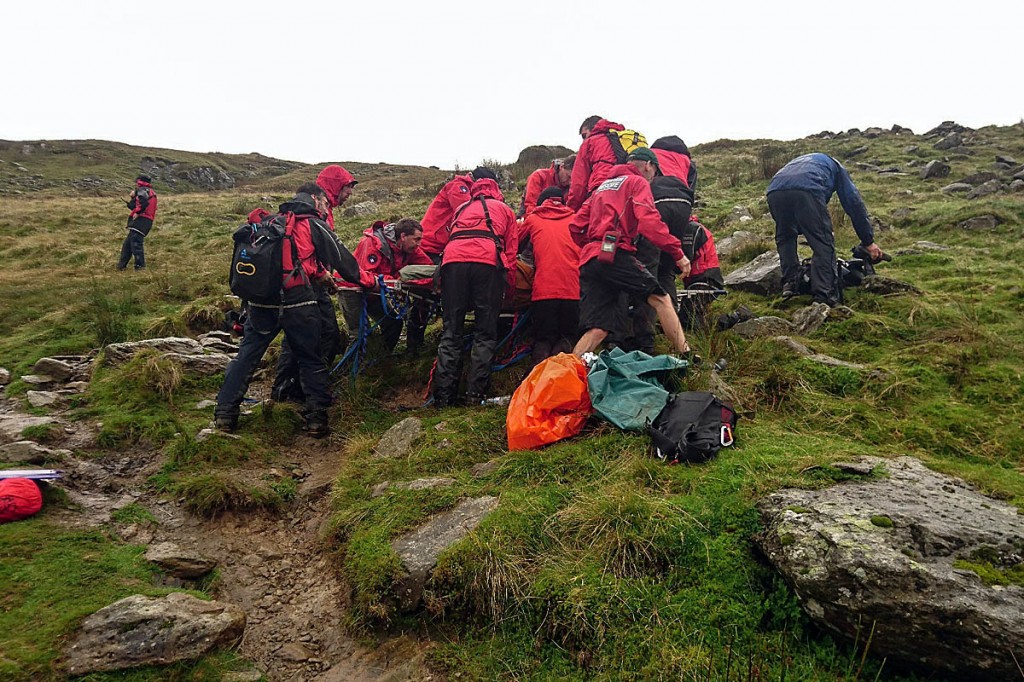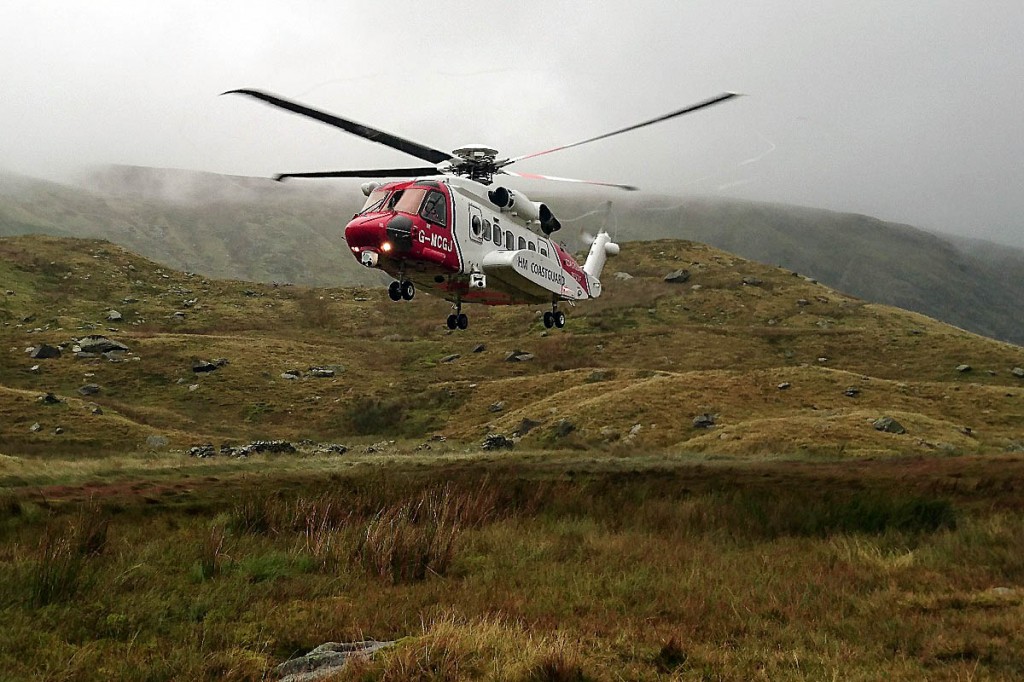A walker was airlifted to hospital after injuring her head in a fall while on the Coast to Coast route in the Lake District.
Two mountain rescue teams went to the 60-year-old woman’s aid on Greenup Edge.
The Langdale Ambleside team was called out at 12.15pm on Monday, and because the incident was on the boundary of the two teams’ areas, Keswick MRT members also went to the scene.
A Keswick team spokesperson said the walker struck her head when she fell. “She bled profusely and those with her immediately sought assistance.
“As the incident site was right on the border between the two teams, Keswick were asked to assist. The team’s first vehicle set off to Wythburn with five personnel, and was followed fairly swiftly by a second one.
“Langdale in the meantime checked on the availability of the air ambulance, given that it would be some time before the team could be on scene, but unfortunately, Helimed 58 [the Great North Air Ambulance] was turned back by the weather.
“Both teams continued up the hill, whilst a request for a Coastguard helicopter was made, in the light of the head injury.
“Once at the scene, rescuers treated the lady and she was secured in a vacuum mattress to protect her neck. Rescue 936, the Caernarvon S-92, duly turned up after the casualty had been carried down to below the cloudbase.
“It was able to transfer her to the Royal Preston Hospital for treatment. The teams stood by until the aircraft was airborne, and then stood down.”
The rescue lasted 5¾ hours and involved 12 Langdale Ambleside members and 10 from the Keswick team.


Cagger
22 September 2017Of course the rescue teams are great, doing a difficult job in all sorts of conditions and all sorts of hours.
However, I don't medically understand why two teams had to go out for a single incident simply because the incident occurred on the border of their two patches.
I understand that I only have this scant facts from this article and also scant knowledge of how it all works, but if these facts really do represent what happened then it seems to me that to get to teams going out is a waste of resources – and of course what would have happened if there had been a callout to some other area and one of the teams hadn't been available as a result of this incident.
If this is really what happens any time (as rare as it might be) that an incident takes place on a border, then surely it's about time that the responsible parties for all the teams got their heads together and agreed a protocol for deciding which team should go out – most experienced, freshest team, all sorts of criteria which I'm sure could be listed and agreed in order to make sure that these scarce resources were used in the most effective and economical way.
Cagger
22 September 2017Sorry, I don't understand why it says "medically" in my post above.
It should say "I don't really understand…"
Maybe someone could correct it and delete this post.
Ta